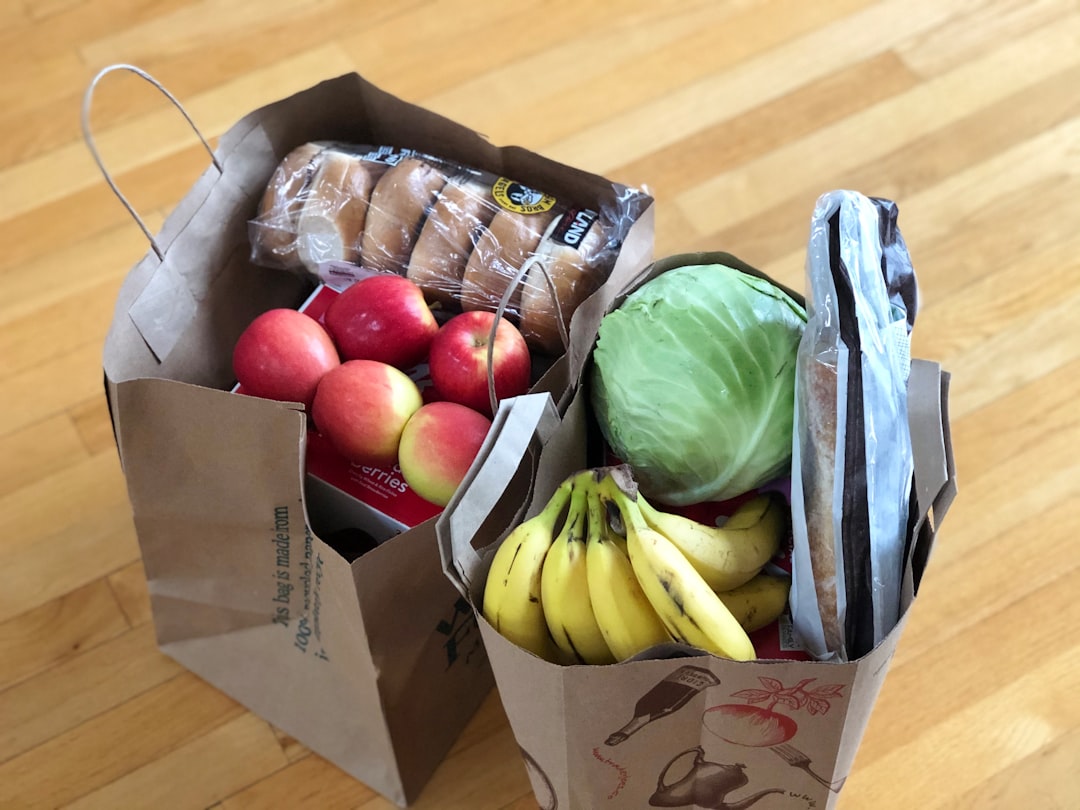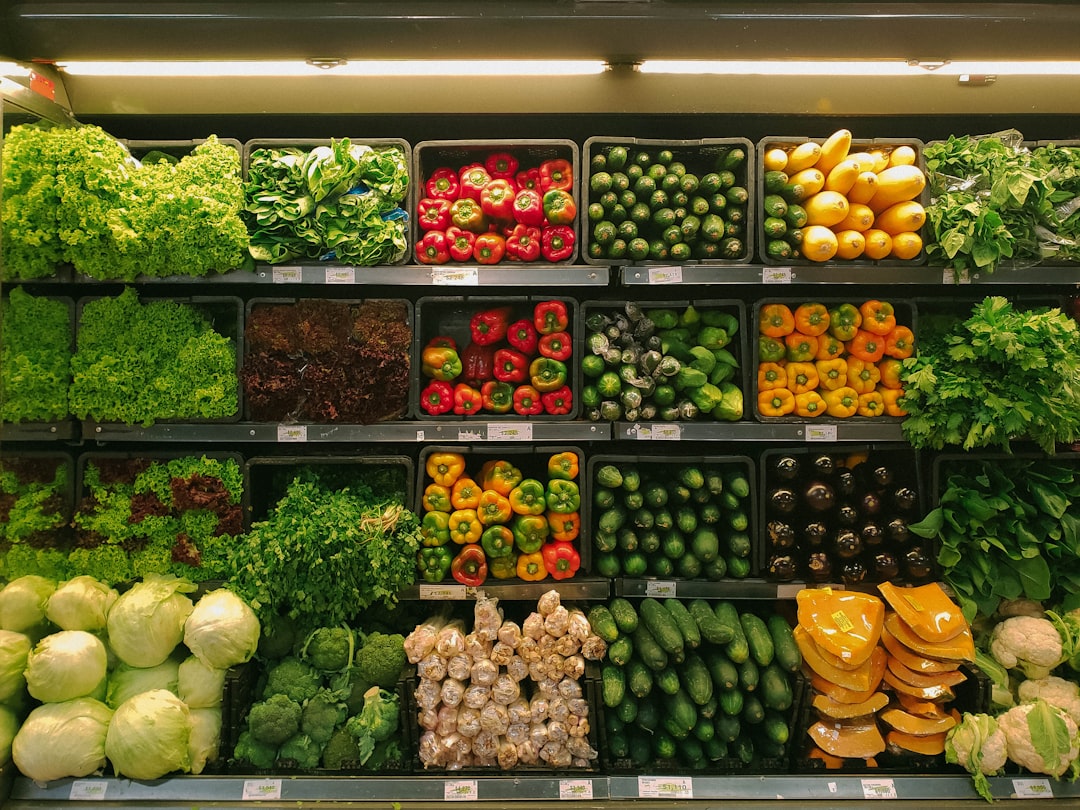Meal planning has become increasingly popular in recent years as people seek to save time, money, and reduce stress in their daily lives. The concept of meal planning involves taking the time to plan out meals for the week or month ahead, with the goal of reducing food waste, avoiding impulse purchases, and ultimately saving money on groceries.
The rise of meal planning can be attributed to a number of factors, including the growing awareness of the importance of healthy eating, the desire to save time in our busy lives, and the need to stick to a budget. By taking the time to plan out meals in advance, individuals can ensure that they are eating a balanced diet, while also saving money and reducing the stress of daily meal decisions.
In this blog post, we will explore the financial benefits of meal planning in detail, including how it can help individuals save money on groceries, reduce food waste, and ultimately lead to healthier eating habits. We will also discuss how meal planning can save time and reduce stress, ultimately leading to a more balanced and fulfilling lifestyle. So, let’s dive in and explore the many benefits of meal planning!
Budgeting: How Meal Planning Can Help You Save Money
Meal planning is not just about eating healthy and staying organized. It’s also a great way to save money on your grocery bill. By planning ahead, you can avoid impulse purchases and reduce food waste, which can add up to significant savings over time.
When you meal plan, you create a shopping list based on the meals you plan to make for the week. This means you only buy the ingredients you need, which can help you avoid overspending on unnecessary items. It also helps you avoid the temptation to buy convenience foods or takeout when you don’t have a plan for dinner.
Another benefit of meal planning is that it can help you reduce food waste. When you plan your meals, you can use up ingredients before they go bad, which means you’re not throwing away food (and money) that you didn’t use. According to a study by the Natural Resources Defense Council, the average American household throws away 25% of the food they buy, which can add up to $1,500 a year for a family of four. By meal planning and reducing food waste, you can save a significant amount of money on your grocery bill.
In addition to saving money on groceries, meal planning can also help you save money on eating out. When you have a plan for meals at home, you’re less likely to order takeout or go out to eat, which can be expensive. By preparing meals at home, you can save money and have more control over the ingredients and portion sizes.
Overall, meal planning is an effective way to save money on your food budget. By reducing food waste, avoiding impulse purchases, and preparing meals at home, you can save a significant amount of money over time. So, if you’re looking for ways to cut back on your expenses, meal planning is a great place to start.
By planning ahead, you can avoid impulse purchases and reduce food waste, which can add up to significant savings over time.
Grocery Shopping: Streamlining Your Shopping List and Preventing Overspending with Meal Planning
Meal planning isn’t just about deciding what to eat for the week. It’s also about streamlining your grocery shopping list and preventing overspending. When you plan your meals in advance, you know exactly what ingredients you need and can avoid buying unnecessary items.
One of the biggest benefits of meal planning is that it allows you to take advantage of sales and discounts. By knowing what you need in advance, you can stock up on items when they are on sale and avoid buying them at full price later. This can save you a significant amount of money over time.
Meal planning also helps you avoid impulse purchases. When you go to the grocery store without a plan, it’s easy to get sidetracked by sales, promotions, and new products. You may end up buying items you don’t need or won’t use, which can add up quickly. By sticking to your shopping list, you can avoid these temptations and keep your spending under control.
In addition to saving money, meal planning can also help you make healthier choices. When you plan your meals in advance, you can ensure that you are getting a balanced diet with plenty of fruits, vegetables, and whole grains. This can lead to better health outcomes and ultimately save you money on healthcare costs.
To make the most of your meal planning, it’s important to take inventory of what you already have in your pantry and fridge before you go shopping. This will help you avoid buying duplicates and wasting food. You can also use apps and online tools to create your shopping list and compare prices at different stores.
Meal planning can be a powerful tool for streamlining your grocery shopping list and preventing overspending. By taking advantage of sales, avoiding impulse purchases, and making healthier choices, you can save money and improve your overall well-being. Give it a try and see the difference it can make in your life!
It’s also about streamlining your grocery shopping list and preventing overspending.
Healthier Eating: The Benefits of Meal Planning
Meal planning is not only a great way to save money and time, but it can also lead to healthier eating habits. By planning your meals ahead of time, you can make sure that you are getting a balanced and nutritious diet. This can ultimately save you money on healthcare costs in the long run.
One of the biggest benefits of meal planning is that it allows you to control what you eat. When you plan your meals, you can choose healthy and nutritious ingredients, and avoid processed and unhealthy foods. This can help you maintain a healthy weight and reduce your risk of chronic diseases such as diabetes, heart disease, and cancer.
Moreover, meal planning can help you avoid unhealthy eating habits such as skipping meals or eating on the go. When you have a plan in place, you are less likely to reach for unhealthy snacks or fast food when you are hungry and pressed for time. This can help you maintain a consistent eating schedule and avoid overeating.
Another benefit of meal planning is that it can help you save money on groceries. When you plan your meals, you can make a grocery list and avoid buying unnecessary items. This can help you avoid impulse purchases and reduce food waste, which can save you money in the long run.
In addition, meal planning can help you make the most of your time in the kitchen. By prepping your meals ahead of time, you can save time during the week and reduce stress. This can help you stay on track with your healthy eating goals and avoid the temptation to order takeout or dine out.
Overall, meal planning is a great way to promote healthier eating habits and save money on healthcare costs. By taking control of your diet and planning your meals ahead of time, you can enjoy the benefits of a balanced and nutritious diet, while also saving time and money. So why not give meal planning a try and see how it can benefit you and your family?
When you plan your meals, you can make a grocery list and avoid buying unnecessary items.
Time Management: The Benefits of Meal Planning in Streamlining Your Daily Routine
Meal planning is not just about saving money and eating healthier. It can also be a powerful tool in managing your time and reducing stress. By planning your meals ahead of time, you eliminate the need to decide what to eat on a daily basis, freeing up valuable time and energy for other activities.
Think about it – how much time do you spend each day thinking about what to eat? Whether it’s deciding what to cook for dinner or figuring out what to grab for lunch, these decisions can take up a significant amount of your day. By meal planning, you can eliminate this daily decision-making process and instead focus on other tasks.
Meal planning can also help you stay on track with your schedule. By knowing what you’re going to eat ahead of time, you can plan your day accordingly and avoid the stress of rushing to prepare a meal at the last minute. This can be especially helpful for busy professionals or parents who have limited time and need to stay organized.
In addition, meal planning can help you avoid the temptation of fast food or takeout. When you have a plan in place, you are less likely to make impulsive decisions that can be costly and unhealthy. This can save you time and money in the long run, as you’ll be less likely to spend money on expensive restaurant meals or unhealthy snacks.
Overall, meal planning can be a powerful tool in managing your time and reducing stress. By streamlining your daily routine, you can free up valuable time and energy for other activities, while also staying on track with your schedule and avoiding costly and unhealthy food choices. So next time you’re feeling overwhelmed by the daily decision-making process, consider giving meal planning a try – your mind and your wallet will thank you.
In addition, meal planning can help you avoid the temptation of fast food or takeout.
Meal Prep
Meal planning is not only about deciding what to eat and when to eat it, but it also involves meal prepping. Meal prep is the act of preparing meals in advance, which can save time and money by reducing the need for takeout or dining out. Meal prep involves cooking and portioning out meals in advance, which can help individuals stick to their meal plan and avoid the temptation of eating unhealthy foods.
One of the main benefits of meal prep is that it can save money. By cooking meals in advance, individuals can avoid the need to buy expensive takeout or dine out at restaurants. Additionally, meal prep can help individuals avoid impulse purchases at the grocery store, as they already know what ingredients they need for their meals. This can help reduce food waste and save money on groceries.
Meal prep can also save time. By preparing meals in advance, individuals can avoid the need to cook every day, which can be time-consuming. This can be especially beneficial for busy individuals who have little time to cook during the week. Additionally, meal prep can reduce stress by eliminating the need to decide what to eat on a daily basis.
Another benefit of meal prep is that it can help individuals maintain a healthy diet. By preparing meals in advance, individuals can ensure that they are eating nutritious foods that are in line with their dietary goals. This can ultimately save money on healthcare costs by preventing chronic diseases that are often caused by poor dietary habits.
Meal planning involves more than just deciding what to eat. Meal prep is an important part of the meal planning process that can help individuals save time and money, maintain a healthy diet, and reduce stress. By incorporating meal prep into their routine, individuals can enjoy the financial benefits of meal planning and improve their overall well-being.
Meal prep can also save time.
Conclusion: The Financial Benefits of Meal Planning
After exploring the various aspects of meal planning, it is clear that there are numerous financial benefits to this practice. By taking the time to plan meals ahead of time, individuals can save money in several ways.
Firstly, meal planning can help reduce food waste and avoid impulse purchases. By knowing exactly what ingredients are needed for each meal, individuals can purchase only what they need and avoid buying items that may go unused and eventually be thrown away. This can add up to significant savings over time.
Secondly, meal planning can streamline grocery shopping and prevent overspending. Knowing exactly what to buy and sticking to a list can help individuals avoid unnecessary purchases and stay within their budget. This can also lead to healthier eating habits, as individuals are more likely to avoid processed and unhealthy foods that may be more expensive.
Thirdly, meal planning can ultimately save money on healthcare costs. By making healthier food choices and avoiding fast food and other unhealthy options, individuals can reduce their risk of developing chronic diseases such as obesity, diabetes, and heart disease. This can lead to significant savings in healthcare costs over time.
In addition to these financial benefits, meal planning can also save time and reduce stress by eliminating the need to decide what to eat on a daily basis. By planning meals ahead of time, individuals can avoid the last-minute rush to figure out what to make for dinner and can instead focus on other important tasks.
Furthermore, meal planning can lead to meal prep, which can save time and money by reducing the need for takeout or dining out. By preparing meals in advance, individuals can avoid the temptation to order in or eat out, which can add up to significant savings over time.
In conclusion, meal planning is a simple yet powerful tool that can help individuals save money, eat healthier, and reduce stress. By taking the time to plan meals ahead of time, individuals can reap numerous financial benefits and improve their overall quality of life. We encourage readers to give meal planning a try and see the positive impact it can have on their finances and overall well-being.





